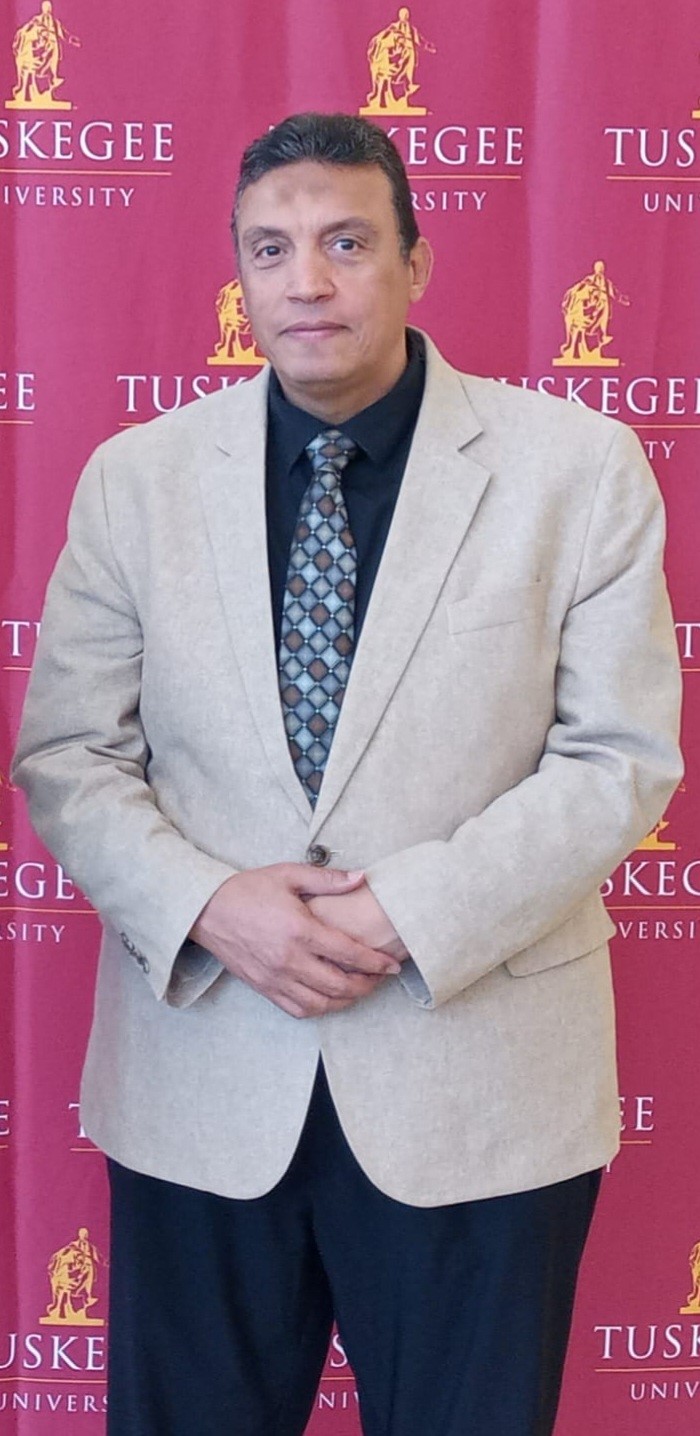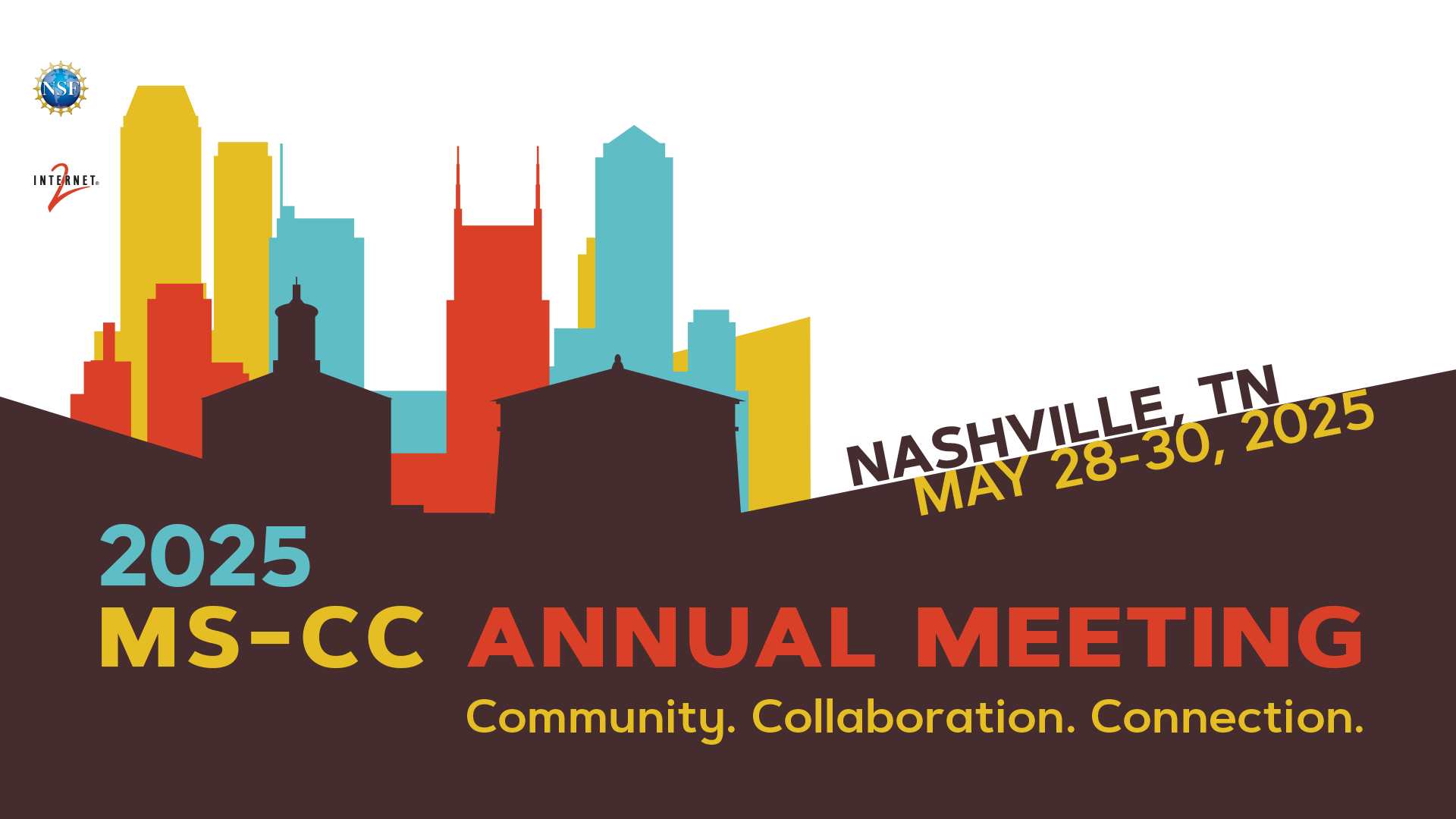By Apryl Motley – Communications Consultant, MS-CC
“Planet resiliency” encompasses the ability of our planet and its systems (ecological, social, economic) to withstand and recover from various environmental challenges, including climate change impacts, natural disasters, and resource depletion. An upcoming session at the MS-CC Annual Meeting, “Supporting Planet Resiliency through CI at MS-CC Campuses,” will illuminate the vital role that sophisticated cyberinfrastructure plays in empowering MS-CC campuses to contribute meaningfully to planet resiliency. One of the featured speakers will be meteorology and atmospheric science expert Dr. Gamal Salah El Afandi. He is a professor in the department of agricultural and environmental sciences at Tuskegee University.
Dr. El Afandi and his co-presenter, Dr. Debanjana Das of Howard University, will share their insights and experience at the MS-CC 2025 Annual Meeting in Nashville this week. Here’s Dr. El Afandi’s take on this upcoming session.
Q: What prompted you to submit a session on this topic?
With 30+ years of experience in the field of planet resiliency, I have concentrated my research on its multifaceted impacts across various sectors, particularly emphasizing the development of mitigation and adaptation strategies. The objective is to transform potential crises into opportunities that enhance community resilience and security. In recognition of the urgent need to promote planetary resilience through cyberinfrastructure (CI) at Minority Serving Cyberinfrastructure Consortium (MS-CC) campuses, I plan to share my findings at our annual meeting to elevate discussions and outcomes.
Q: Why is your topic an important one to address?
Commitment lies in devising strategies that strengthen planetary resilience within higher education environments. This is crucial for enriching the academic and social experiences of students, faculty, and staff at Historically Black Colleges and Universities (HBCUs) and Tribal Colleges and Universities (TCUs). I am particularly concerned with enhancing sustainable campus-level IT infrastructures that support data-intensive education and research initiatives, while simultaneously increasing awareness of the vital role cybersecurity plays in this context. To facilitate this, I will conduct a session focused on demystifying cybersecurity concepts and practices.
Q: What do you hope attendees will learn from your presentation?
Currently, I serve at Tuskegee University, an esteemed HBCU in Alabama, and a member of the 1890 Universities established under the Morrill Act to provide education in agriculture and mechanical arts. Tuskegee is integral to expanding access to academic opportunities for marginalized communities. As a land-grant institution, we emphasize public service and outreach, ensuring our research and educational endeavors serve not only our students but also the wider community.
I firmly believe that a comprehensive integration of cybersecurity efforts on campus can significantly enhance the educational experiences of our students, faculty, and staff, particularly through sustainable IT frameworks that undergo data-driven educational and research activities. Specifically, our presentation will in part explore the concept of sophisticated cyberinfrastructure, including its key components such as high-performance computing, data storage, advanced networking, and specialized software; present case studies of MS-CC campuses that have successfully implemented cyberinfrastructure initiatives aimed at enhancing planetary resiliency; and examine collaborative efforts between MS-CC institutions and other stakeholders in promoting planet resiliency through technology.
Q: How has attending the MS-CC Annual Meeting been beneficial or helpful to you?
Attending the MS-CC Annual Meeting has proven to be highly beneficial for me because it highlights the role of education in fostering environmental awareness by examining how educational institutions can be pivotal in raising awareness about environmental issues through curriculum development centered on sustainability and resiliency, alongside community outreach programs designed to motivate students to participate in environmental stewardship both on campus and in the wider community.
In addition, the MS-CC Annual Meeting offers an opportunity to discuss collaborative approaches to sustainability across MS-CC campuses by emphasizing the significance of collaboration among various departments, student organizations, and local communities in enhancing sustainability efforts and showcasing case studies of successful partnerships and proposed frameworks for structuring these collaborations to maximize the impact of planet resiliency initiatives.

More About Dr. El Afandi
Total Years at Tuskegee: 15 years
What He Likes Most About His Job:
- Intellectual Engagement. Academics engage deeply in research and discourse within their areas of expertise, thereby enhancing both their knowledge and contributing to a dynamic academic ecosystem.
- Flexibility. Academic roles often incorporate flexible scheduling, which enhances work-life integration, enabling educators to effectively balance their responsibilities in teaching, research, and personal endeavors.
- Impact on Students. Professors play a pivotal role in shaping their students’ academic trajectories and personal growth through mentorship and guidance.
- Service, Extension, and Outreach. I actively participate in community engagement initiatives tailored to address specific socio-economic needs via diverse programming, including educational initiatives, workshops, and outreach collaborations aimed at underserved populations, intending to promote equitable access to resources and foster resilient communities through sustainable solutions.
Best Advice About Cyberinfrastructure He Ever Received (& from whom):
Insights from respected peers in information technology underscore the importance of a robust and scalable system that addresses current demands and facilitates future growth. Integrating stringent security protocols, along with an emphasis on data integrity and user privacy, is essential for effective outcomes. This strategic guidance has played a significant role in shaping the approach to cyberinfrastructure projects, particularly in large-scale climate data management and predictive modeling.

Check out the program to learn more about the sessions being offered at the MS-CC Annual Meeting in Nashville. Even if you aren’t joining us at the meeting, we’ll be sharing materials from the sessions. See something of particular interest? Please let us know.
